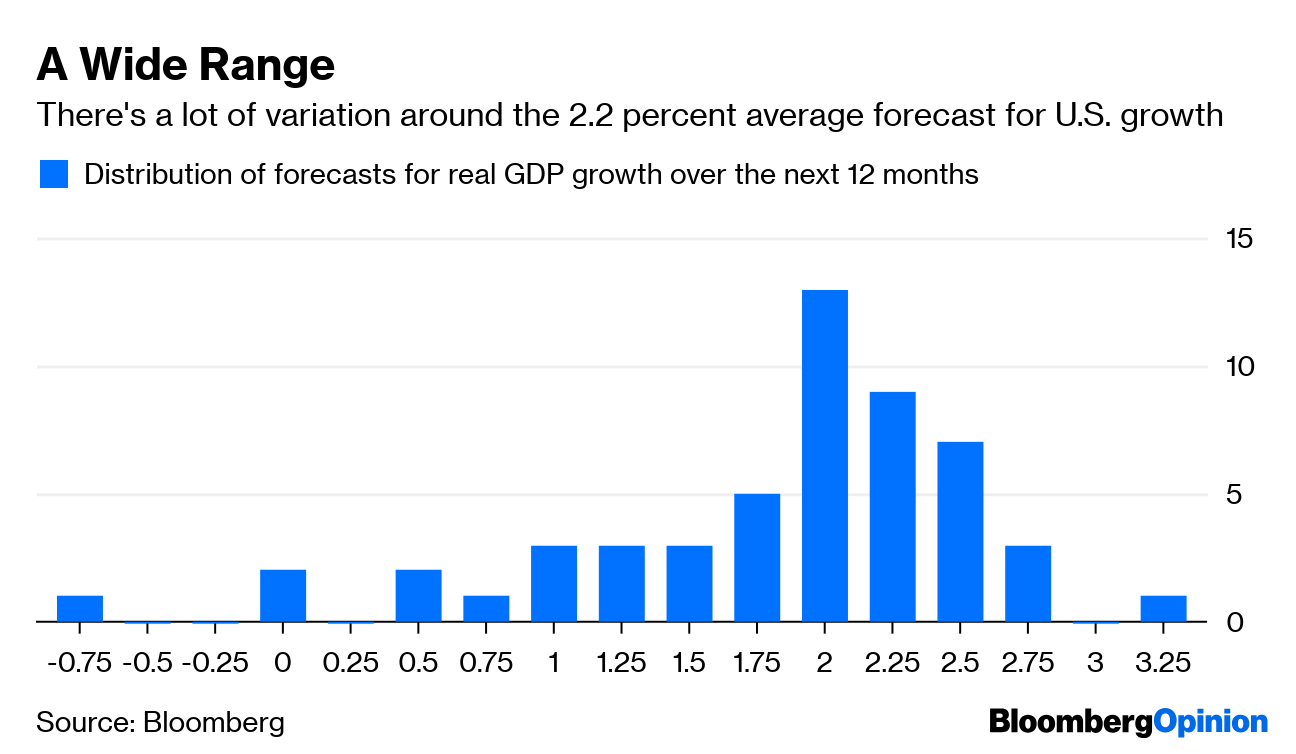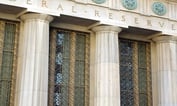Will the U.S. dip into recession sometime in the coming year? Economists increasingly disagree on what will happen — and that in itself may be an ominous sign.
Every month, Bloomberg surveys dozens of economists — from banks, research firms, universities — on the outlook for the U.S. On average, as of Friday, they expected the economy to grow 2.2 percent during the next 12 months, adjusted for inflation. That said, there was a lot of variation, particularly on the down side: Predictions ranged from 3.2 percent growth to a 0.8 percent contraction. Here’s how that looks:

Variation can matter. Back in 2007, when I was managing a similar survey at the Wall Street Journal, I noticed that although economists weren’t very good at predicting recessions, they did tend to disagree more when one was imminent. That’s what happened before the downturns of 1990 and 2001, and what ultimately happened before 2008. It’s not a perfect indicator, and can spike without foreshadowing anything, but it’s worth watching.









 March 25, 2019 at 10:25 AM
March 25, 2019 at 10:25 AM












